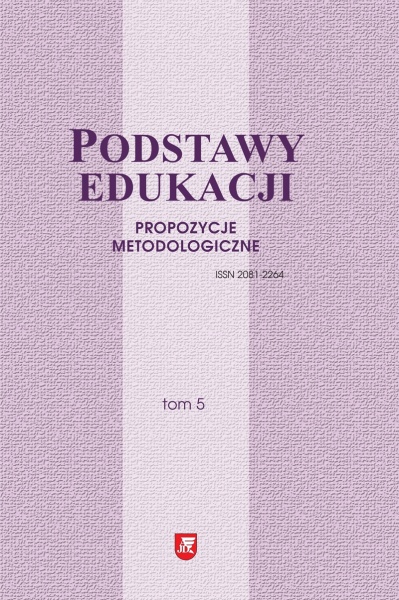Abstract
The article presents a method of investigating learning process regarded as continuous change of certain psychological proprieties of the student’s mind. Because of the lack of possibility to conduct continuous observation in the classroom, many of important learning factors remains unknown. It is possible, as proved by simple diagnostic case, to observe the continuity of view by frequent repeating single observations using computer technology. When learning content is presented as an interactive hypertext and all students’ actions connected with that content are logged, the researcher can take continuous view at the process of learning. The proposed technique requires: 1) learning content, prepared as hierarchically structured resource (a set of HTML documents, just as WWW page); 2) a classroom equipped with computers (one terminal per student), where lesson is conducted (it is also possible to use the resource individually, as a part of self-training); 3) a server facility, serving the content to the students and thoroughly recording: which student requested what part of the resource in what time (in the example presented, the Apache http server was used). After recording data, it is possible to conduct analyses regarding students’ actions during the lesson. Examples of these outcomes are presented in form of graphs, visualising students’ activities during the lesson.
References
Babbie, E. (2008). Podstawy badań społecznych. W. Betkiewicz i in. (tłum.). Warszawa.
Brzeziński, J. (2007). Metodologia badań psychologicznych. Warszawa.
Gagne, R.M., Briggs, L.J., Wager, W.W. (1992). Zasady projektowania dydaktycznego. K. Kruszewski (tłum.). Warszawa.
Hurlock, E.B. (1985). Rozwój dziecka. B. Hornowski, K. Lewandowska, B. Rosemann (tłum.). Warszawa.
Stachura, A. (2003). Wirtualny podręcznik – własności i sposób wykorzystania. W: K. Denek, F. Bereźnicki, J. Świrko-Pilipczuk (red.). Proces kształcenia i jego uwarunkowania. Szczecin.
Stachura, A. (2005). Diagnozowanie procesu uczenia się w kształceniu wspomaganym komputerowo. W: K. Wenta, E. Perzycka (red.). Diagnoza pedagogiczno-psychologiczna wobec zagrożeń transformacyjnych. Szczecin.
Zimny, Z.M. (2000). Metodologia badań społecznych. Częstochowa.
Zimny, T.M., Stachura, A. (1997). Podręcznik do zindywidualizowanego kształcenia matematycznego. Propozycja sposobu realizacji i stosowania. W: T.M. Zimny (red.). Oświata na wirażu. Częstochowa – Poznań.
I am aware that the journal is published under the Creative Commons Attribution License (https://creativecommons.org/licenses/by/4.0/legalcode).
By submitting an article, I agree to make it available under this license.
